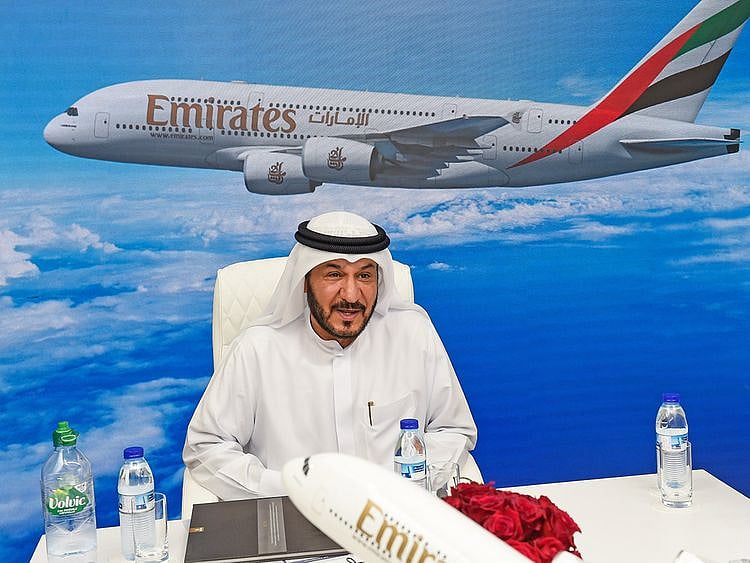Aviation industry could bounce back in 2022 by speeding up hiring: Emirates’ Al Redha
The airline’s load factor has risen above 75% across its network

Dubai: Emirates Chief Operating Officer Adel Al Redha believes the aviation sector could bounce back in 2022 itself if airlines and airports ramp up hiring to deal with the severe staff shortages.
Industry body IATA (International Air Transport Association) expects global airlines to return to pre-COVID levels in 2023. “The industry could come back in 2022, but the only thing holding us back is our ability to source the required frontline staff, whether it’s the airline, ground handling or airport,” said Al Redha during the Arabian Travel Market.
“Some countries have still not opened up 100 per cent,” he said.
China’s financial capital Shanghai has seen strict lockdowns being imposed after a recent spike in cases. Most Gulf-based aviation industry executives have ruled out the possibility of travel restrictions returning on a global scale.
Emirates’ load factor – an industry metric that measures an airline’s carrying capacity – has risen above 75 per cent across its network with some routes almost at 100 seat factors.
Hedging oil
The Emirates executive said that the airline has been practicing hedging, without disclosing any further details. Some airlines, including Sharjah-based Air Arabia, have oil hedges that can help partially offset the fuel price increase.
Airlines also pass on the additional costs to the customers in the form of surcharges. “We have done some kind of adaptation to cope with the fuel prices because we were not expecting to be hit with this level of oil price two months back,” said Al Redha.
Crypto adoption
Al Redha called the industry-wide adoption of Bitcoin or other cryptocurrencies ‘inevitable’ and said it could be part of the airline’s future digital push.
The Emirates official said that cryptocurrencies could be used for purchasing Emirates Skywards Miles and accessing airport lounges. “I am not saying that Emirates will go into this right now, but these are the opportunities that this type of technology will enable us to address,” said Al Redha.
“It is a game-changer in the way we are doing our businesses. We are seeing very clear evidence that the customer doesn’t like to come to you, the customer wants you to go to him,” he added.
Rising traffic
According to IATA’s March update, passenger traffic - measured in revenue passenger kilometers - was up 76 per cent compared to the same period last year. International air travel demand rose about 285 per cent against March 2021.
Middle Eastern airlines’ traffic jumped roughly 246 per cent in March compared to March 2021. Capacity in the month rose 96.6 per cent versus the year-ago period, while load factor climbed 31.1 percentage points to 72.1 per cent.
“With barriers to travel coming down in most places, we are seeing the long-expected surge in pent-up demand finally being realised,” said Willie Walsh, IATA’s Director General.
“Unfortunately, we are also seeing long delays at many airports with insufficient resources to handle the growing numbers - this must be addressed urgently to avoid frustrating consumer enthusiasm for air travel,” said Walsh.
Sign up for the Daily Briefing
Get the latest news and updates straight to your inbox
Network Links
GN StoreDownload our app
© Al Nisr Publishing LLC 2025. All rights reserved.